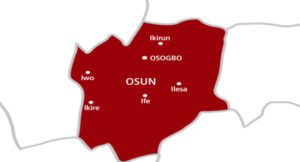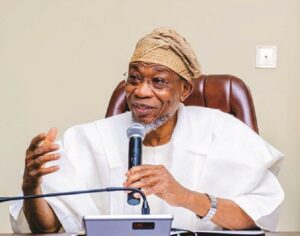


Hardship, high cost of living and looming protests across the country
By Abraham Achimugu
The Nigerian economy has mostly been grappling with a myriad of challenges over the years however, in recent times, these issues have been worsened by the federal government’s decision to remove fuel subsidies which have resulted in problems such as; a high cost of living, a growing sense of insecurity and general hardship, all of which is presently leading to widespread protests across the country.
The removal of fuel subsidies in May 2023 by the Tinubu-led administration has had a significant impact on the cost of living for ordinary Nigerians. Fuel subsidies were initially put in place to mitigate the effects of high global oil prices on domestic consumers but after these subsidies were removed, it led to a sharp increase in the price of fuel, which in turn has affected the costs of transportation, food prices and the all-around business environment. The price of fuel has skyrocketed, leading to an increase in the cost of essential goods. For instance, the increase in the price of transportation is causing a ripple effect on the costs of goods and services due to higher logistics and operational expenses and as a result, the cost of living for the average Nigerian has risen significantly, making it increasingly difficult for many to afford basic necessities of life.
Moreover, the difficulty caused by the high cost of living has been compounded by the country’s security challenges. Insecurity has been a major issue in Nigeria, the country has been facing a growing wave of insecurity in recent years with widespread kidnappings, banditry and insurgency plaguing various parts of the country, this has made it increasingly difficult for people to go about their daily lives leading to a sense of fear and uncertainty, particularly in the northern and middle-belt regions where activities of insurgent groups such as; Boko Haram, kidnappers and banditry have led to widespread displacement, loss of lives and destruction of properties in these areas. In addition, the herders-farmers conflicts and ethno-religious tensions have further exacerbated the security situation in the country. This insecurity has directly impacted the economy, particularly in terms of agriculture, trade and investment, leading to a decrease in economic productivity and an increase in the cost of security measures for businesses and individuals.
Both insecurity and the removal of fuel subsidies have directly contributed to inflation and economic hardship in Nigeria. The combination of these factors has led to reduced investor confidence, a decrease in foreign direct investment and a challenging business environment, all of which have a direct impact on the overall economic stability. Additionally, the hardship caused by insecurity and the removal of fuel subsidies has led to a decline in the standard of living for many Nigerians in that, it has become increasingly difficult for families to afford essential needs such as food, healthcare and education. This has put a huge strain on the finances of ordinary citizens, many of whom are already struggling to make ends meet. Furthermore, the combination of these factors has led to overall anger and frustration among the Nigerian populace. Many people feel that the federal government has failed to address their concerns and that they are being forced to bear the brunt of the country’s economic woes.
In response to these challenges, there have been growing calls for protests and demonstrations across the country. These protests are aimed at drawing attention to the hardship being faced by ordinary Nigerians and putting pressure on the government to address these issues. However, the government’s response to these calls has been heavy-handed, with reports of security forces using excessive force to quell demonstrations. Nevertheless, this decision by the government has further sparked nationwide rallies, with people taking to the streets to express their outrage at the high cost of living and the hardship it has caused, the situation has further rotted as the protests are rapidly gaining momentum. In light of the mounting agitations and growing discontent, it is clear that the federal government needs to take urgent action to address the hardship and insecurity facing Nigerians. The government must engage in meaningful dialogue with the populace through their representatives and work towards finding sustainable solutions to the country’s economic and security challenges.
In conclusion, the hardship, high cost of living and insecurity currently being faced in Nigeria have created a volatile and challenging environment for ordinary citizens. The federal government’s decision to remove fuel subsidies has only worsened these issues leading to a growing sense of unrest across the country. The government must take decisive action to address these challenges and restore confidence in the country’s economy and security architecture in the interest of peace and national development.



